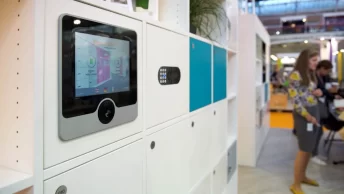Veterans, who have dedicated their lives to serving their country, deserve support and assistance as they transition back to civilian life. Fortunately, there are numerous veteran assistance programs available to provide a range of services and resources. Whether it’s healthcare, education, employment, housing, or financial support, these programs aim to help veterans and their families lead successful and fulfilling lives. Here is a guide to some of the key veteran assistance programs.

- Veterans can rely on the VA for a wide variety of support services. Healthcare, disability payments, retirement plans, academic and professional development opportunities, housing, financial aid, insurance, and retraining are all examples. In order to receive these benefits, veterans must submit an application to the VA, either online or in a local VA office.
- TAP provides comprehensive assistance to veterans transitioning from military service to civilian life. It includes workshops, counseling, and resources to help veterans explore career options, develop job search skills, and navigate the civilian job market. TAP ensures that veterans are equipped with the tools and knowledge to successfully transition into the civilian workforce.
- VETS is a program under the U.S. Department of Labor that focuses on helping veterans find employment. They offer job placement assistance, career counseling, resume building, and skills development programs. VETS also works with employers to promote the hiring of veterans and facilitate their successful integration into the workforce.
- VHA provides healthcare services to eligible veterans. This includes primary care, specialized medical services, mental health support, rehabilitation, and long-term care. Veterans can access VHA services through VA medical centers, community-based outpatient clinics, or through telehealth services.
- Several programs assist veterans in obtaining housing. The VA offers home loans, mortgage refinancing, and housing grants for disabled veterans. The HUD-VASH program provides rental assistance and supportive services for homeless veterans. Additionally, non-profit organizations like the Veterans Association of Real Estate Professionals (VAREP) work to increase veteran homeownership opportunities.
- Various organizations provide financial assistance to veterans and their families. The American Legion, Veterans of Foreign Wars (VFW), and Disabled American Veterans (DAV) offer grants, scholarships, and emergency financial assistance. These programs help alleviate financial burdens and provide support during times of need.
- Veterans can get financial aid for their higher education through the GI Bill in the form of grants, loans, and work study programs. It’s applicable to post-secondary education generally, as well as apprenticeships, credentialing, and degree programs.
It’s important for veterans to explore these assistance programs and take advantage of the resources available to them. By accessing these programs, veterans can find the assistance they need to thrive in their post-military lives.







